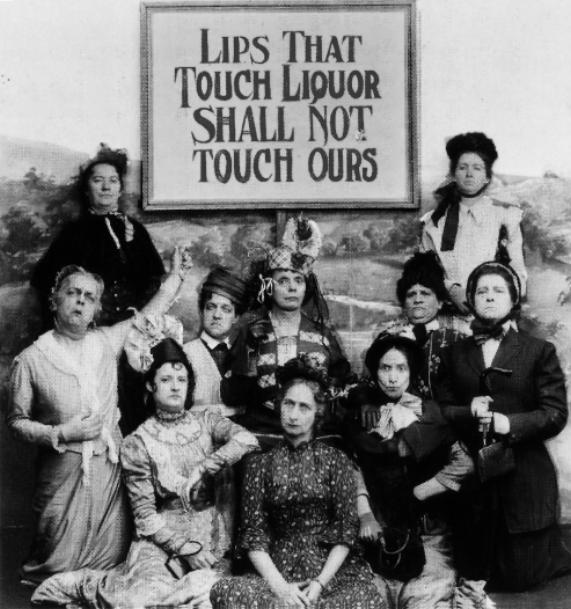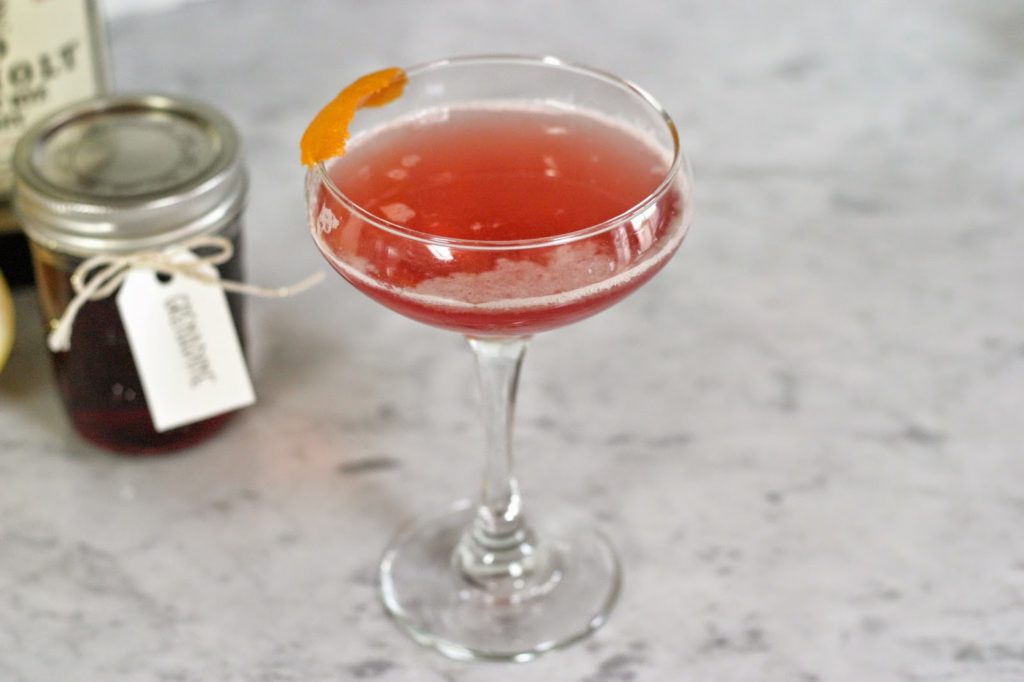Pink week continues with another rosy-colored concoction: the Scofflaw. I first learned about this cocktail from David Lebovitz, who posted the recipe on his blog along with instructions for making homemade grenadine. Like the Jack Rose, it’s tart and sweet. In fact, it’s almost a little too candy-in-a-glass for me, despite its seemingly respectable ingredients and storied history. I might try a more powerful rye next time; Lebovitz recommends Hudson. In the meantime, I’d kind of like to serve one of these to a friend who swears they don’t like whiskey and then tell them they’re drinking rye and vermouth. Maybe the fact that they’d be surprised means the recipe needs some alteration.
History: From 1920 to 1933, the United States prohibited the production and sale of alcohol. I can only imagine that this was an extremely frustrating time for anyone who enjoyed a good drink. And yet Prohibition has been romanticized by today’s cocktail culture. Speakeasy-style bars with hidden entrances have become fashionably retro, to the point where it’s easy to forget that they were once hidden by necessity.
If it wasn’t enough that buying alcohol could land you in jail, prohibitionists further sought to shame drinkers for their moral deficiencies. In 1923, a banker and staunch teetotaler named Delcevare King announced a contest to coin a shameful word for someone who flouted the law and drank liquor. Two people independently submitted the term “scofflaw” and split the $200 prize.
 |
| Prohibition-era poster: further incentive to drink. |
Unfortunately for King, American tipplers at home and abroad enthusiastically embraced the term. Within a year, Harry’s New York Bar in Paris was serving a drink called the Scofflaw in honor of their American ex-pat customers. The recipe was printed in Gavin Duffy’s Official Mixer’s Manual in 1934.
Scofflaw
1 1/2 oz. rye whiskey
1 oz. dry vermouth
3/4 oz. lemon juice
3/4 oz. grenadine
2 dashes orange bitters
Combine all ingredients in a shaker. Add ice and shake until chilled. Strain into cocktail or coupe glass. Garnish with a lemon or orange peel.
Recipe from David Lebovitz.






